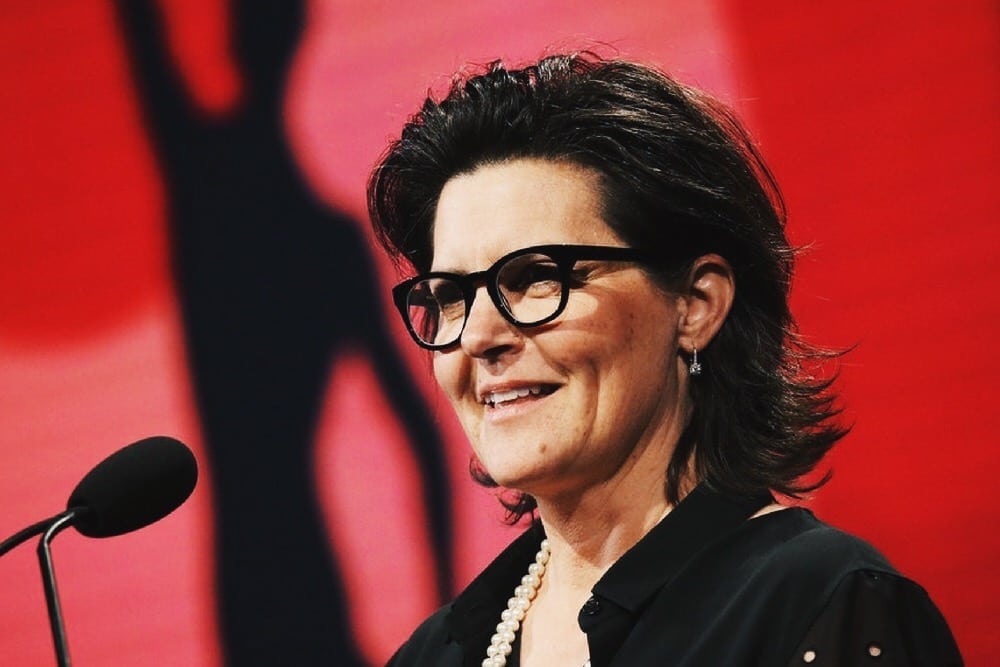Dr. Ximena Hartsock is co-founder and president of Phone2Action, a Washington, DC-based startup that enables citizens to connect with policymakers via email, Twitter, and Facebook using their mobile phones. “Phone2Action is a venture-backed, award-winning civic engagement and communications technology company with offices in Washington, DC, and Arlington, Virginia,” Hartsock explains. “We build software that organizations use to create public policy campaigns.”
Before co-founding Phone2Action, Hartsock was national director of grassroots for an education organization, and prior to that, she was a member of the Executive Cabinet of DC Mayor Adrian Fenty, serving as the director of the Department of Parks and Recreation, and later as chief of staff of the City Administration.
When Hartsock managed membership and outreach as national director of grassroots, she ran hundreds of campaigns across the country and learned that many people didn’t know who their lawmakers were or how to contact them. “Having previously served as a high-level government official, I know first-hand how important it is to engage with constituents,” she says. “My twofold experience as a government official, and later, as a grassroots organizer, provided a unique perspective, and in 2012, I realized technology could bridge the gap between people and government.”
While civic engagement was not a catch phrase back then, Hartsock knew that it would eventually become a mainstream concept because people tend to be passionate about the issues that they care about.
Phone2Action actually launched in 2013, and the same year, it won the Best New Tech award at SXSW. By August 2013, Phone2Action raised $600K in seed funding. By June 2016, it raised $4.6 million in Series A Funding. In 2017, the company hosted the 1st Annual Good Tech Summit, and launched Social Pulse, a social media advocacy management feature.
So what does Phone2Action entail? “We build a comprehensive suite of digital grassroots tools that can connect people with lawmakers via email, phone, and social media,” Hartsock says. “We were pioneers in the design of social media advocacy tools and voice recognition advocacy — we also built a platform that in minutes enables patch through calls.”
She believes that one-size-fits-all campaigns are dead. “The new tools for civic engagement meet the advocates where they are, and today’s advocates want to personalize their communications to elected officials using pictures, gifs and by sharing their personal stories.”
Some of Phone2Action’s areas of involvement and clients include the following:
- Human Rights: Doctors Without Borders
- Civil Rights: Women’s March on Washington
- Education: National Humanities Alliance
- Environment: League of Conservation Voters
- Healthcare: American Heart Association
- Technology: AT&T
“Civic technology is growing fast and it’s exciting that our industry is still in diapers, so we have a great opportunity to build innovative tools,” Hartsock explains.
Challenges of being a woman in tech — especially trying to raise VC capital
It’s no secret that we need more women in technology, and Hartsock believes that one of the challenges of being a woman in tech is that it can sometimes be lonely. “Another major challenge is that too often we get the wrong advice and this makes us too cautious and skeptical,” she says. “In addition, there are not enough open networks for women entrepreneurs — you need to have good connections to enter elite entrepreneur circles and this contributes to the segregation of entrepreneurs of color (Hartsock is from Chile) and the limited perspective of investors.”
She advises women to be prepared when trying to raise capital. “You need to know your market size, your business model, your P&L — don’t forget your cap table.” Hartsock says she hears women say that they’re bad at math and use this as an excuse for not knowing the numbers. “That’s inexcusable — if you want to be taken seriously, take yourself seriously and learn.”
Hartsock says the lack of a record of success is a big hindrance. “Most successful companies in the U.S. are run by men, and investors don’t often get to meet or ‘spot’ promising women who eventually turn into successful serial entrepreneurs,” she explains. “We owe it to the next generation to beat that track record, so we need to keep working hard in our companies, get funded, grow the companies, take them to success, and have the opportunity to exit them.”
As the midterms approach, Phone2Action is a powerful reminder that your passion can make a difference in your community. What do you love — and what does your world need? As the saying goes, where those two meet is where your greatest success lies.
It certainly worked for Dr. Hartsock.







